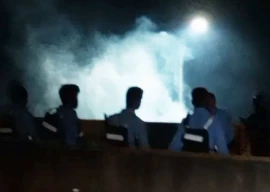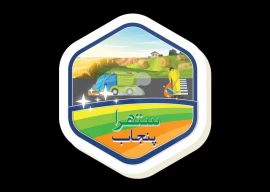
The significance of Thimphu was that Indian and Pakistani political leaderships together came to the conclusion that the post-26/11 strategy of making substantive dialogue conditional on progress in the Mumbai investigation was counterproductive for both the Mumbai investigations as well as the bilateral relationship.
At the conclusion of the Delhi talks today, the likely announcements will cover a new visa regime to promote people-to-people contact, confidence-building measures to increase travel and trade between the divided Kashmirs and dates for meetings of the reconstituted working groups of experts. Perhaps Pakistan’s agreement to give ‘most-favoured nation’ (MFN) status, conveyed during the commerce secretary-level talks, may also be announced. Beyond the content, a decision on the structure of the dialogue process, the active revival of the Joint Ministerial Commission (JMC) will also be announced. Set up in the 1980s, the JMC has met intermittently, depending on the state of bilateral relations and the preferred dialogue track of the governments in power. For example, in 2005, it met after a break of 16 years. Its last session was held in February 2007 but will now be formally revived. This also means that technical-level working groups on agriculture, health, science and technology could well be revived, since they came under the JMC’s ambit.
The impending resumption of a multiple-track engagement between two nuclear-armed neighbours — home to millions of economically, socially and security-deprived citizens — is a welcome development. Equally, Delhi’s decision to opt for a cooperative as opposed to a confrontational approach on Mumbai and Pakistan’s decision to give the MFN status to India are important steps towards improving the context within which there can be substantive cooperation between the two countries.
Some specific issues and developments of late seem to have pushed Islamabad and New Delhi to re-engage. There is the US and Nato troops drawdown in Afghanistan and the search for a reconciliation formula once troops leave; the re-entry of the Taliban; Pakistan’s own comprehensive counterterrorism thrust in Fata; the issue of home-grown Hindu and Muslim militancy within India and India’s quest for a permanent UNSC seat, to name but a few.
Indeed a meaningful engagement will require not only no war, no diplomatic and political antagonism and no interrupted dialogue process, but also resolution of all outstanding problems. It is here where the score-card, so to speak, remains weak.
And now for a bit of a background on the composite dialogue itself which dates back 14 years. Agreement on holding a composite dialogue on its modalities and the issues to be discussed were first worked out and announced during the Nawaz Sharif-IK Gujral government in the Joint Statement of June 23, 1997, announced by then foreign secretaries Shamshad Ahmad and Salman Haider. Working Groups were to be set up to deal with eight issues: Peace and security (including CBMs), Jammu and Kashmir, Siachen, Wullar, Sir Creek, terrorism and drug trafficking (not ‘cross-border terrorism’), economic and commercial cooperation and the promotion of friendly exchanges in various fields. The foreign secretaries were to deal with peace and security and Kashmir, and “also coordinate and monitor the progress of work of all the working groups”.
While this latest round of post-Mumbai diplomacy may have improved the context of the bilateral relationship, the socio-economic, ideological and security challenges that Pakistan and India are both confronted with requires movement on resolving all outstanding problems. Unless this is done, it will be difficult to sustain substantive bilateral cooperation or to revise the existing threat perception that each country has of the other.
Published in The Express Tribune, July 27th, 2011.
COMMENTS (16)
Comments are moderated and generally will be posted if they are on-topic and not abusive.
For more information, please see our Comments FAQ
1730854420-0/plaqueboymax-(1)1730854420-0-405x300.webp)


1729080111-0/BeFunky-collage-(63)1729080111-0-165x106.webp)
1730838202-0/Trump-(1)1730838202-0-165x106.webp)












@S Hussain
I agree with your view. But the problem is, how do we define "...Pakistan's legitimate concerns." in a way that becomes acceptable to India too. And then,Indians have their own "legitimate concerns" too.
The Indian response to this website fascinates me. In the context of this article, India and Pakistan are indeed each other's ideological rivals, absolutely!
However, why must we continuously remain rivals, at what cost? This 60-year old confrontation has certainly left millions of impoverished, disillusioned people on either side of the border, brimming with the hatred the blood-letting of partition started.
We are sick of these wars and this hatred brimming in the subcontinent. Our forefathers may have murdered each other, but that does not mean we must continue down this path. Whereas there is a growing realisation in Pakistan that we must change, that we must rebuild trust; India too, should make efforts to alleviate Pakistan's legitimate concerns.
@ Nasim Zehra:
Madam, in last paragraph you have come to the crux of Pakistani mindset that dialogue “requires movement on resolving all outstanding problems (read Kashmir) and unless this is done, it will be difficult to sustain substantive bilateral co-operation.”
And and more ….. “unless this is done it is also difficult to revise the threat perception”.
I feel that this mindset has not yet realized that Kashmir is now out of bounds of Pakistan. The early they forget it is better for them.
These talks will make no difference. Just a show, spending tax payer's money.
this is birlliant artical.
why do so many of you self assured Indians spend an inappropriate amount of time sitting like hawks waiting to comment and spread some kind of negativity. this article tried to shine some positive optimistic light upon our bilateral relations, there is no need to fall back on the blame game
I think good faith must be demonstrated by Pakistan. What about handing over Dawood Ibrahim - he is a wanted Indian national. Why are Pakistani commentators silent on the Dawood issue. Or does it expose the superficiality of their commitment to the peace efforts - according to Ejaz Haider, Indian commentators want Pakistani liberals to accept Indian supremacy - this he concluded reading Taseer and tharoor's articles which even remotely does not make any such demand. Where does Indian supremacy come into play - harbouring wanted criminals is an offence - period. Sending militants across the border is a crime - responsible for the deaths in the Kashmir valley. The one statement by Mohd. Imran, one of the respondents above is worth more than the words you have penned Ms. Zehra - post-Mumbai does not exist till Lakhvi and his cohorts are tried - I would argue that that trial is as important as the 18th amendment in Parliament.
The role that India and Pakistan want to play in the global comity of nations are very divergent. There is no synergy in either thinking, philosophy or action between the two. One is military dominated, the other is development oriented. .One country aids, hosts, arms and trains terrorists for destabilising the neighborhood while claiming to want friendly relations with its neighbors. What are the two foreign ministers going to discuss ? I feel there is nothing in common to discuss.
Indian Government has a policy in place and as per that it had stopped talking to Pakistan. But, this change? Because India is afraid of Pakistan failing. The people at the top do not want to take that risk.
Look at what has happened in the past year in Pakistan- Most wanted man in the World was found to be sheltered in Pakistan, Pakistani Defence centers were attacked with support from within, attacks in every nook and corner of Pakistan, Pakistan actually arresting the people who supported the operation to hunt down OBL, Military dictating to the Civilians but cowing down to the Terrorists.. The list goes on.
So, this move is based on reality than any policy change.
home to millions of economically, socially and security-deprived citizens — is a welcome development.
These Pakistani writers somehow where happy to bracket Pakistan with India and satisfy their false ego, you cannot compare apple and oranges.
@Naseem,
Whole Kasmir problem was created due to Pak .First capture half of it .Then to capture another half, send terrorists .India forcefully deployed military there. Pak is only shouting ,neither they obey UN resolution nor Shimla accord .In between 3 wars started by pak, Kargil intrusion , no need to mention terrorists attcks by so-called non-state actors.How can peace process go on ?Time for India to give an opt reply .
@Antony - Mohammed imran is actually saying that 26/11 investigations should be supported by Pakistan. Please try to understand the comment before replying.
@mohammed, Wouldnt hurt to actually stop the kashmir peace process until 26/11 perpetrators are punished.This is what 99.99% of indians feel.
Wouldn't hurt to actually stop delaying the 26/11 trial.
Mrs. Khar's meeting Kashmiri separatist leaders even before her meeting with Mr. Krishna actually exposes Pakistan's covert support to militant groups hostile to India.
Nasim Zehra
Pakistan and India are both each other's ideological and security challenges and to pretend otherwise is a dangerous delusion.